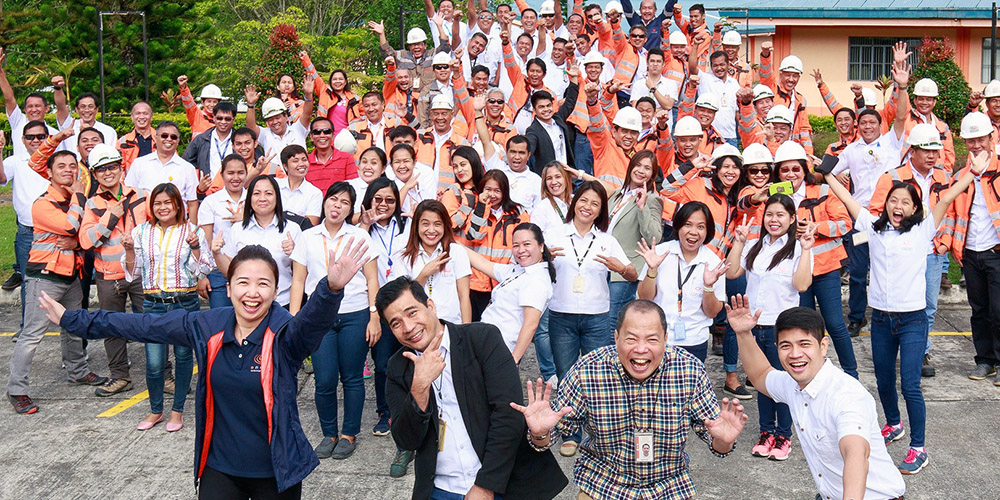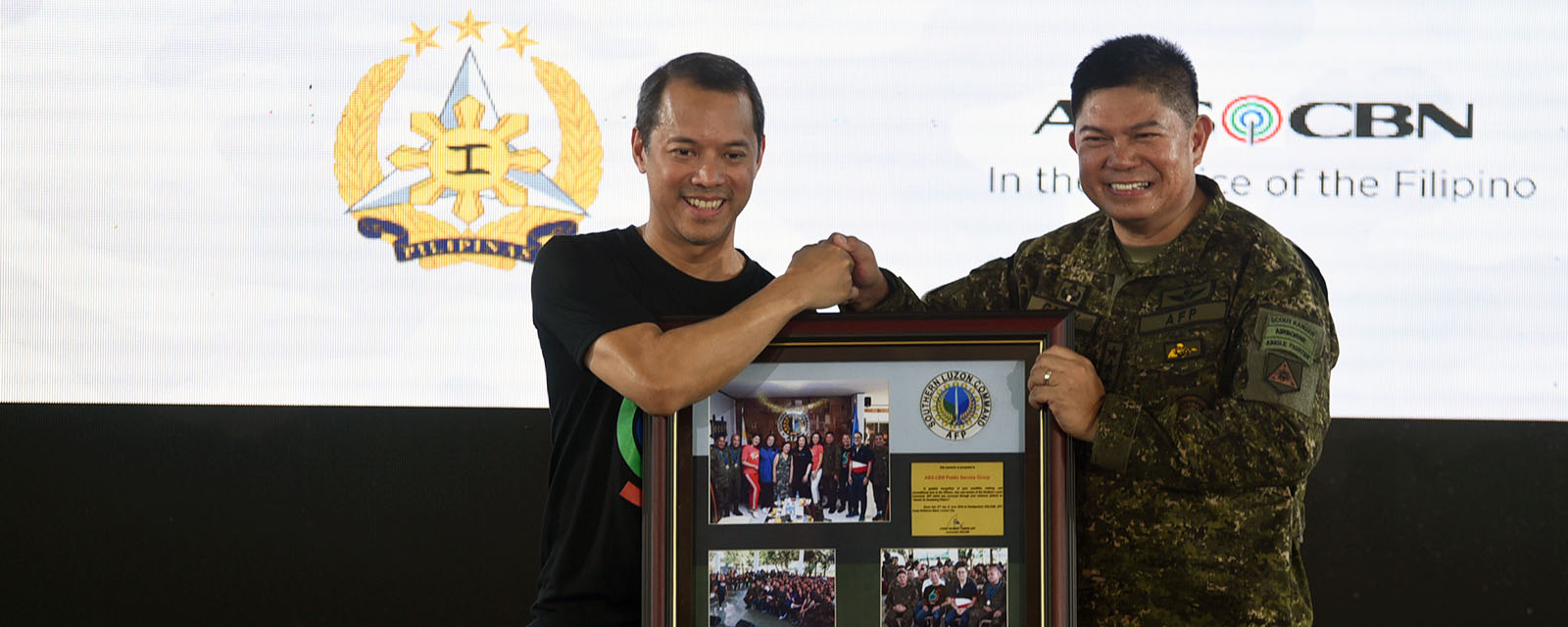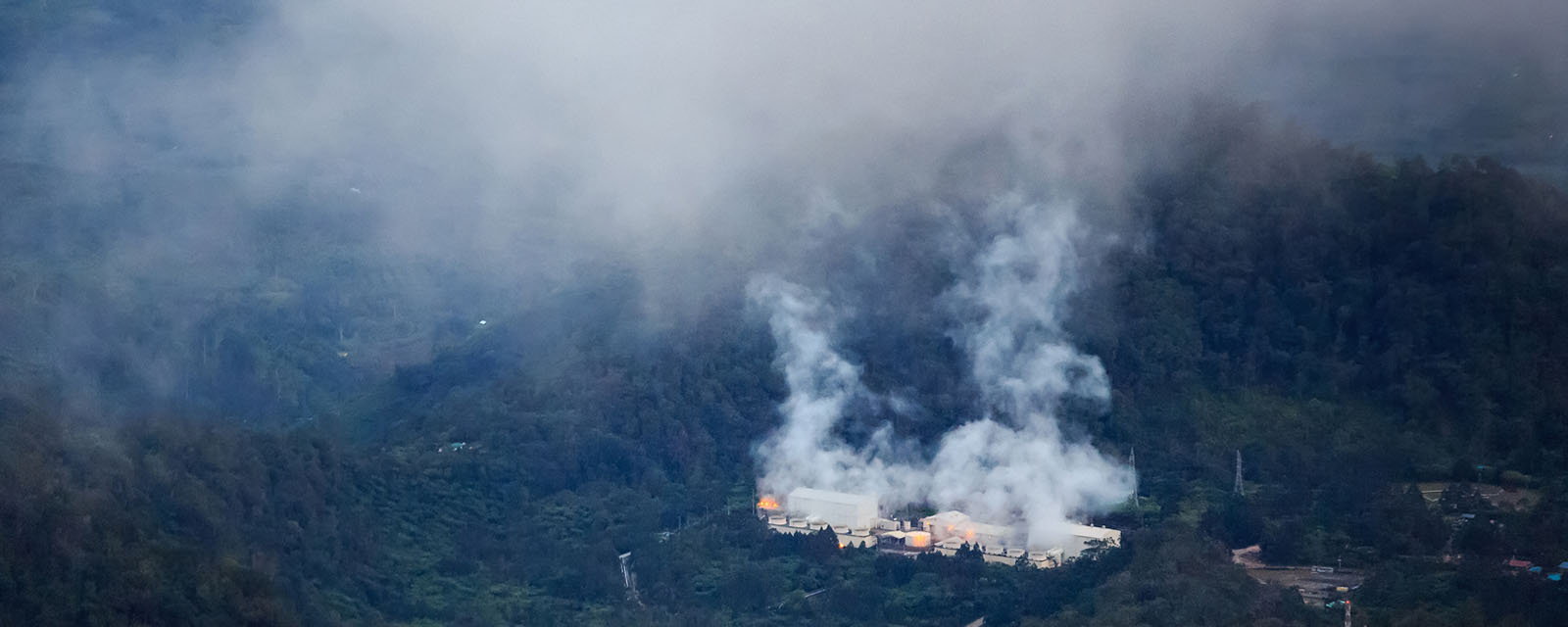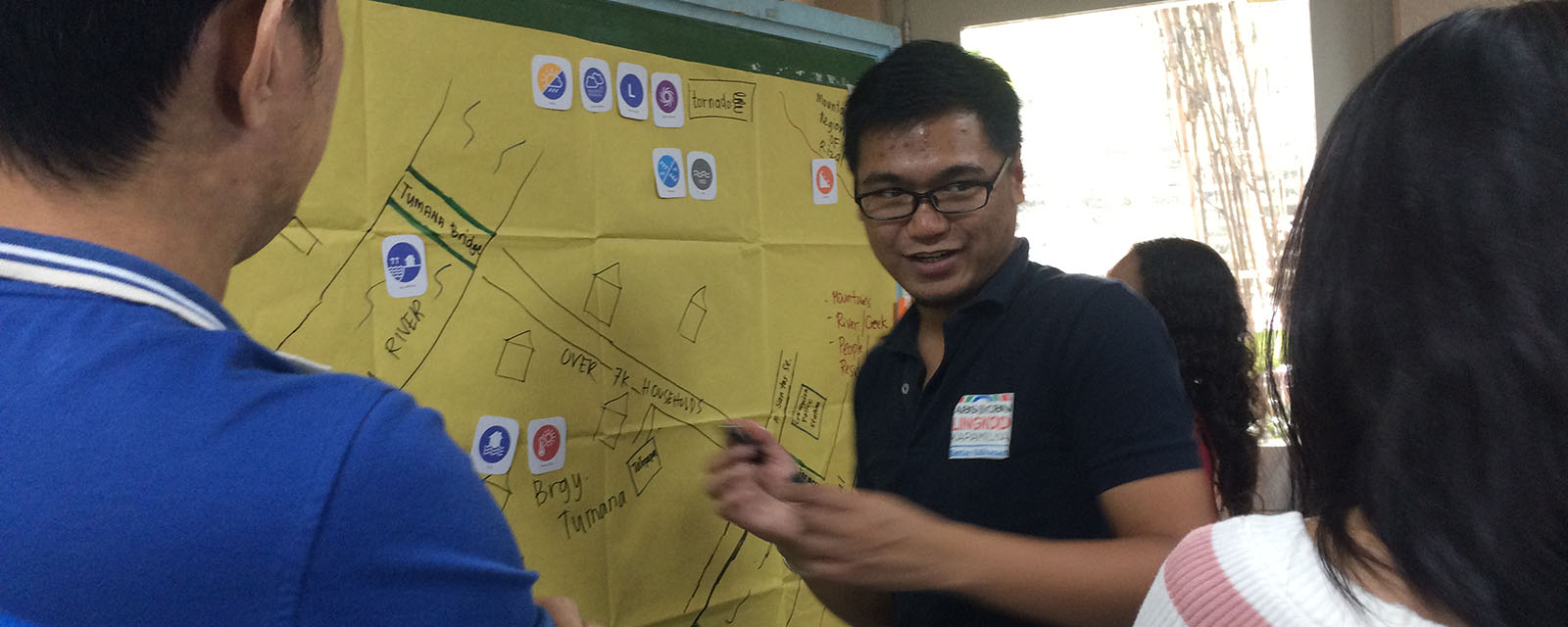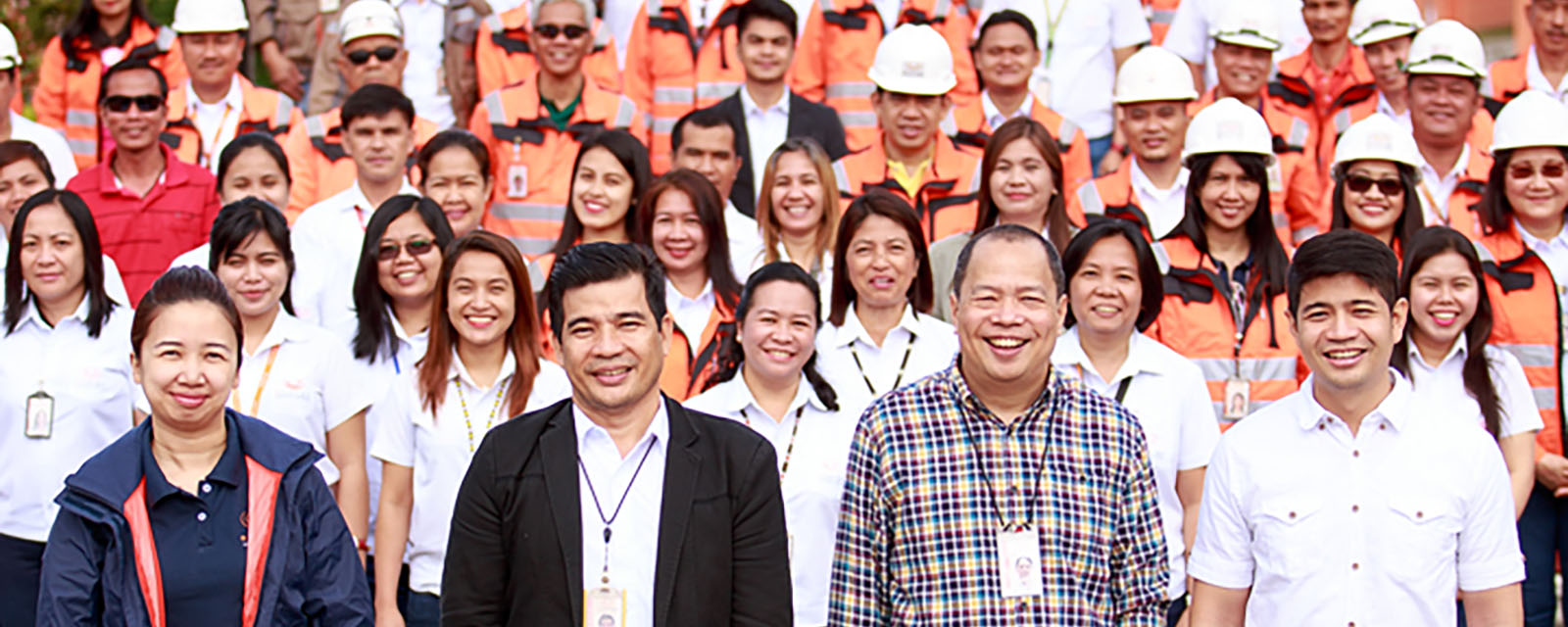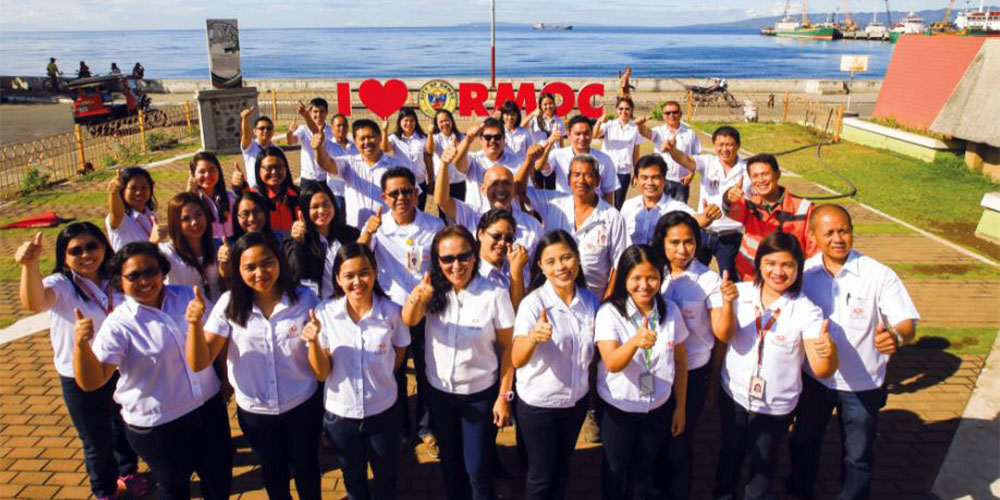The following is an excerpt from the message delivered by Energy Development Corporation (EDC) president and chief operating officer Richard Tantoco on Sept. 20, 2020 during the “Season of Creation” event series of the Global Catholic Climate Movement and its partner Focolare Movement.
The world is in trouble. Yes, we now live in quite dystopian times, characterized by the most unprecedented disruption in generations.
But what is engulfing us today in this pandemic is but a sneak peek of the geologic scale changes that we have been seeing in record-breaking temperatures, hurricanes, typhoons and forest fires hitting the planet with regularity and consistency every year now.
What makes a country vulnerable? Let me just discuss one of the pernicious effects of climate- driven disasters on our poor brothers and sisters. A major disaster strikes: they lose their home and their crops or livestock. They do not have the funds needed to build back, much less build back better. So the focus shifts to food and shelter. Education is deprioritized. Over time, if this pattern is repeated, suffering is amplified in the short term while inequality is multiplied in the long term.
This feedback loop is called climate injustice: those generating the most carbon that drives climate change are the least impacted, and those that do not even have access to carbon generating goods and services are the ones that are ravaged, time and time again.
Call to action: Making Tough Decisions
Truth be told, as late as 2015, we were actually looking for a site where we could build our first coal-fired power plant. Even after Yolanda, it took us time to crystallize in our hearts and minds that getting into coal was the wrong thing to do.
Our chairman [Federico R. Lopez], after much internal debate and discussion and many tough moments of challenging each other, made the bold and visionary decision to say no to coal in 2016. That was the moment we woke up and decided to say goodbye to a large pot of gold by sticking to 100% renewable energy.
Sustaining the path we are on which seeks only to do less harm is simply not enough. Everyone—from individuals to businesses to government— needs to transform to a model of regenerative development.
Regenerative Thinking
What does regeneration actually mean and how can we do it? For us in the Lopez Group, which EDC is a part of, it is about aligning our business, our resources and our capabilities to fulfill a mission, and that is to elevate everything we touch.
This year, we crystallized our mission at our group of companies, including EDC, and that is: “To forge collaborative pathways for a decarbonized and regenerative future.”
We’ve also put into words our purpose, etching out the role we see for ourselves in the coming years with greater clarity:
“We recognize that our planet’s life support systems and social institutions are now at a breaking point. Unbridled consumption and primacy of bottom-line growth are at the root of the climate crisis. Our alienation from nature, and the profound social and economic divisions, have become existential threats to humanity today.
“Overcoming all of these challenges will require paradigm shifts in the ways that we think, live, and do business. It is now clear that pursuing sustainability that seeks only to do less harm is no longer good enough.
“Instead, we need to create symbiotic, mutually beneficial relationships with nature and society that benefit more than just shareholders. Businesses today must urgently become a regenerative force that elevates everything that they touch—customers, employees, suppliers, contractors, the environment, communities, and investors.
“The transformation cannot be done by entities working alone. We are mindful that we exist within highly diverse and nested systems, and that we must all play unique, reciprocal, and synchronized roles in a world that needs to be healed. Our collective success will be measured by how quickly we can decouple economic and social prosperity from the destruction of our planet’s life support systems.
“We choose this path because it is the only way to a destination where everyone has the opportunity to thrive and prosper on a healthy planet. We choose this path because we believe it is the only way to create lasting value for all stakeholders and not just shareholders.
“We choose this path because it is inseparable from the Lopez Values that have, and always will, define us.”
Elevating our Employees
We have always strived to foster a healthy and positive working environment, but it was during this COVID-19 pandemic that management was truly able to show its genuine familial care or “pampamilyang malasakit.”
While we required most of our colleagues to work from home, we formed a skeleton force that expertly operates our power plants and we are providing them with good sleeping quarters, appetizing food and stable internet so they can always get in touch with their loved ones while working onsite.
But we went beyond the obvious to elevate our colleagues. We repurposed benefits, delivered to their doorstep masks, comfortable office furniture and equipment, and we go grocery shopping for their families while they are on duty. We do not want them to worry about the basics while they are taking care of running our power plants. We even offered to vaccinate all employees and their families against flu and pneumonia to increase everyone’s chances of survival.
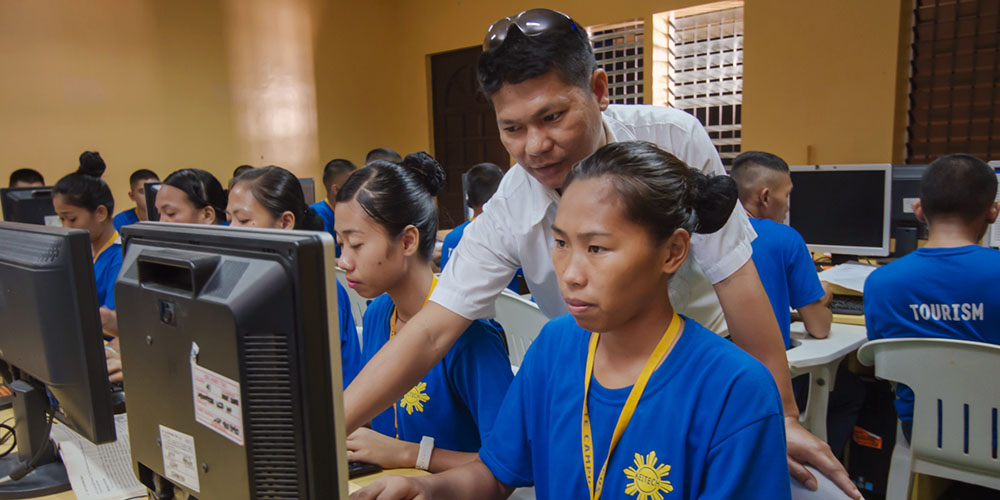
Elevating our Communities
Genuine malasakit is also extended to our partner communities each time they are hit by a natural catastrophe and even more so during this pandemic.
Apart from providing food and medical supplies to our communities and the medical front liners in areas where we operate, we sent container vans that they could use as quarantine facilities or sleeping quarters for the medical staff on duty.
We are likewise helping them put up their first PCR testing centers to help stem the transmission of COVID-19 in the area.
Beyond this pandemic, we invest heavily in education programs knowing that it is the great equalizer. We know that everything we spend has zero returns unlike investing in our operations. We have our SIKAT program where very promising students are taken under our wing and mentored from high school until they get into the UP [University of the Philippines] system.
We also have our KEITECH program, where we take around 150 kids yearly in our terrific facilities. They live in our dorms and learn everything from martial arts, to jungle survival to ballroom dancing. But most of all, they learn self-discipline and earn the self-confidence that comes only with hard effort and dedication.
Elevating the Environment
About 10 years ago, we committed to take our tree planting efforts to the next level by committing to bringing back to abundance 96 of our most endangered Philippine native tree species through our BINHI greening legacy program.
So far, close to 10,000 hectares of degraded and open forests in watersheds have been scientifically replanted with indigenous tree species and fruit-bearing trees. All these were done with the help of our partner communities.
We formed farmers and community associations, and inculcated in them the value of environmental stewardship as we enabled them to help us take care of our forests. We incentivized them and helped them transform into our green warriors.
Elevating our Partners
In 2019, EDC was selected by the International Union for Conservation of Nature (IUCN) to be their only local partner in the Philippines as a result of our efforts to update the status of 35 of our 96 flagship threatened native tree species.
The IUCN’s secretariat, Botanic Gardens Conservation International, the world’s largest plant conservation network, selected EDC to be part of its Global Tree Assessment program. They needed help to update the status of 800 Philippine endemic tree species. To date, EDC has assessed 200 species and IUCN has updated and published 89 species in their Red List.
We have applied systems thinking to hit many regenerative targets with a strong partnership with the UP Diliman Institute of Biology. We launched a biodiversity conservation and monitoring program that shows, today, our areas of operation are home to myriads of wildlife species—291 birds, 43 bats, 25 other mammals and 46 reptiles and amphibians—almost half of them are endemic to our country.
Another partnership we are proud of is one with the Philippine Eagle Foundation. In 2012, we adopted Philippine eagle Geothermica, which is now on loan to Singapore Jurong Bird Park along with its female counterpart, Sambisig, as part of an agreement between the DENR [Department of Environment and Natural Resources] and leading wildlife conservation group Wildlife Reserves Singapore.
The most recent addition to the growing biodiversity in our sites is another Philippine eagle aged three to four years old, which we and our partner Philippine Eagle Foundation have named Makilala Hiraya—after Brgy. Makilala, the area where she was rescued.
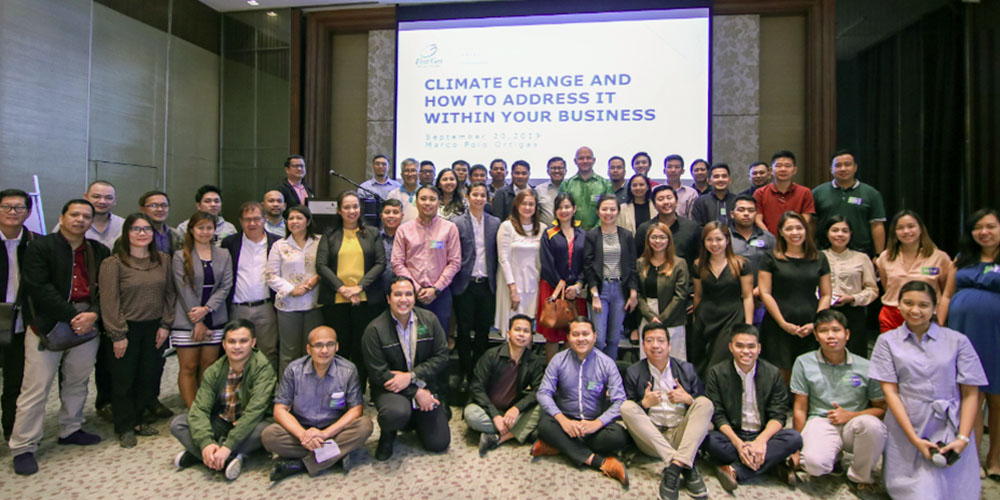
Elevating our Customers
Even before the start of the lockdown, we have been conducting climate change workshops, helping [our customers] find ways to reduce their energy consumption and become more energy efficient to lower their businesses’ carbon footprint.
At the start of this pandemic, we agreed to defer our customers’ payments on the orders of the DOE [Department of Energy] and the Energy Regulatory Commission.
On top of this, we donated sacks of rice, face masks, medicines, vitamins and conducted webinars on business continuity for them.
Regenerative Thinking
This is definitely not a competitive beauty contest. It is not about which company won the most awards. As our chairman Piki Lopez keeps stressing, if we find ourselves ahead but alone at the finish line of this massive and humbling undertaking, we will then have failed in our mission.
Regenerative thinking is also not a light switch that you turn on when you’re at work and turn off in your personal life.
Before I end, allow me to talk about my own personal journey and attempt at being regenerative during this COVID-19 crisis.
I am currently working from my farm up north where this pandemic has worsened poverty. I met with my neighbors and told them that I would buy seedlings of Philippine hardwoods from them at a higher rate than normal. I also told them that I would pay their daily wages. …So far, during this pandemic, we have potted over 60,000 seedlings of palusapis, kamagong, yakal, guijo, malaruhat, dugon, narra and other threatened or endangered tree species.
Andrie Villan, one of our union leaders, continues to provide financial help to his parents for their heart maintenance medicines and his married siblings who lost their jobs due to the pandemic. Mick Aguirre, who’s heading the implementation of our strategic initiatives under our strategic initiatives, legal and regulatory office, has been helping pay for part of the salaries of displaced staff from his mother’s computer shop which was forced to shut down during the pandemic.
Norreen Bautista, our CSR head in Negros, learned how to take care of low-maintenance plants like cactus and has even found them therapeutic.
You see, all of us can be regenerative in our own way. For as long as you think beyond just doing less harm and focus on doing more good, there is a chance to be meaningfully regenerative. We are running out of time—and I would like to ask all of you… to think about the law of limits, to consider what we have done to our planet, to rethink the way we live and do business, to become beacons of light that inspire and collaborate to forge pathways to a decarbonized and regenerative future.
